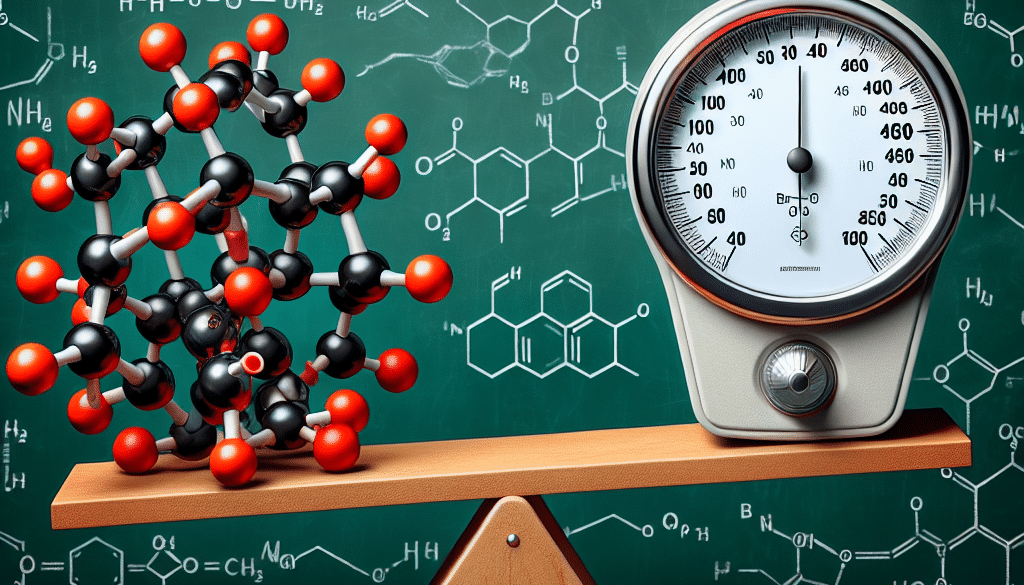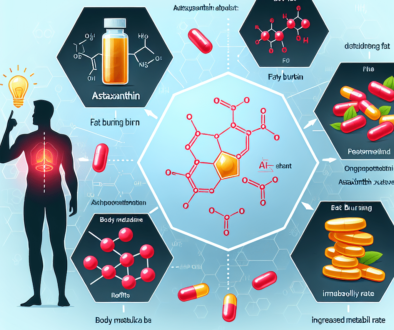Can Astaxanthin Cause High Blood Pressure?
-
Table of Contents
- Astaxanthin and Blood Pressure: Uncovering the Truth
- Understanding Astaxanthin
- The Connection Between Astaxanthin and Blood Pressure
- Research Findings on Astaxanthin and Blood Pressure
- Potential Mechanisms of Action
- Considerations and Precautions
- Case Studies and Anecdotal Evidence
- Conclusion: Astaxanthin’s Role in Blood Pressure Management
- Enhance Your Health with ETprotein’s Premium Protein Products
Astaxanthin and Blood Pressure: Uncovering the Truth

As health-conscious individuals seek out natural supplements to bolster their well-being, astaxanthin has emerged as a popular choice due to its potent antioxidant properties. However, amidst its growing popularity, concerns have arisen regarding its potential impact on blood pressure levels. This article delves into the scientific research to address the question: Can astaxanthin cause high blood pressure?
Understanding Astaxanthin
Astaxanthin is a carotenoid pigment found in certain algae, yeast, salmon, trout, krill, shrimp, and other seafood. It is responsible for the pinkish-red hue in salmon and flamingos, who consume astaxanthin-rich organisms. As a powerful antioxidant, astaxanthin is known to combat oxidative stress and has been linked to various health benefits, including improved skin health, enhanced athletic performance, and potential protection against certain diseases.
The Connection Between Astaxanthin and Blood Pressure
High blood pressure, or hypertension, is a significant health concern that can lead to heart disease, stroke, and other cardiovascular issues. It is influenced by various factors, including diet, lifestyle, genetics, and certain medications or supplements. The question of whether astaxanthin can cause high blood pressure is a critical one, given the supplement’s popularity.
Research Findings on Astaxanthin and Blood Pressure
Several studies have investigated the effects of astaxanthin on blood pressure. The majority of research suggests that astaxanthin may actually have a beneficial impact on blood pressure levels. For instance:
- A study published in the journal “Phytomedicine” found that astaxanthin supplementation reduced blood pressure in spontaneously hypertensive rats.
- Another study in the “Journal of Clinical Therapeutics & Medicines” reported that astaxanthin lowered triglyceride levels and blood pressure in human subjects.
- Research in the “Marine Drugs” journal indicated that astaxanthin might improve endothelial function, which could help regulate blood pressure.
These studies suggest that astaxanthin does not cause high blood pressure; rather, it may help to maintain or even lower it. However, it is essential to note that more extensive human clinical trials are needed to confirm these findings conclusively.
Potential Mechanisms of Action
The mechanisms by which astaxanthin might influence blood pressure are not fully understood, but several theories exist:
- Antioxidant properties: Astaxanthin’s ability to neutralize free radicals may protect blood vessels from oxidative damage, thus improving vascular health.
- Anti-inflammatory effects: By reducing inflammation, astaxanthin could prevent or alleviate damage to blood vessels, aiding in blood pressure regulation.
- Improved lipid profiles: Astaxanthin has been shown to improve cholesterol and triglyceride levels, which could indirectly benefit blood pressure.
Considerations and Precautions
While the current body of research is promising, it is crucial for individuals considering astaxanthin supplementation to do so with caution:
- Consult a healthcare provider before starting any new supplement, especially if you have pre-existing health conditions or are taking medications.
- Be aware of the source of astaxanthin, as supplements can vary in quality and purity.
- Monitor blood pressure regularly to ensure that any changes can be attributed to the supplement and addressed promptly.
Case Studies and Anecdotal Evidence
Although scientific studies provide valuable insights, real-world examples can also shed light on the effects of astaxanthin on blood pressure. Anecdotal reports from individuals who have used astaxanthin supplements have largely been positive, with some users noting improvements in their blood pressure readings. However, these accounts should be taken with a grain of salt, as they are not controlled studies and may be subject to placebo effects or other biases.
Conclusion: Astaxanthin’s Role in Blood Pressure Management
In conclusion, the current scientific evidence does not support the notion that astaxanthin causes high blood pressure. On the contrary, it may offer benefits in managing and potentially lowering blood pressure. However, as with any supplement, it is essential to approach astaxanthin use with informed caution and under the guidance of a healthcare professional.
The key takeaways from this article are:
- Astaxanthin is a potent antioxidant with potential health benefits.
- Research suggests that astaxanthin may help to maintain or lower blood pressure, not increase it.
- Consultation with a healthcare provider is crucial before starting any new supplement regimen.
Enhance Your Health with ETprotein’s Premium Protein Products
If you’re looking to complement your health regimen with high-quality protein sources, consider ETprotein’s range of organic bulk vegan proteins and L-(+)-Ergothioneine (EGT). Their products are non-GMO, allergen-free, and boast a neutral taste, making them an excellent addition to any diet. Whether you’re focused on sports nutrition, weight management, or general wellness, ETprotein has a protein solution to meet your needs.
About ETprotein:
ETprotein, a reputable protein and L-(+)-Ergothioneine (EGT) Chinese factory manufacturer and supplier, is renowned for producing, stocking, exporting, and delivering the highest quality organic bulk vegan proteins and L-(+)-Ergothioneine. They include Organic rice protein, clear rice protein, pea protein, clear pea protein, watermelon seed protein, pumpkin seed protein, sunflower seed protein, mung bean protein, peanut protein, and L-(+)-Ergothioneine EGT Pharmaceutical grade, L-(+)-Ergothioneine EGT food grade, L-(+)-Ergothioneine EGT cosmetic grade, L-(+)-Ergothioneine EGT reference grade and L-(+)-Ergothioneine EGT standard. Their offerings, characterized by a neutral taste, non-GMO, allergen-free attributes, with L-(+)-Ergothioneine purity over 98%, 99%, cater to a diverse range of industries. They serve nutraceutical, pharmaceutical, cosmeceutical, veterinary, as well as food and beverage finished product distributors, traders, and manufacturers across Europe, USA, Canada, Australia, Thailand, Japan, Korea, Brazil, and Chile, among others.
ETprotein specialization includes exporting and delivering tailor-made protein powder and finished nutritional supplements. Their extensive product range covers sectors like Food and Beverage, Sports Nutrition, Weight Management, Dietary Supplements, Health and Wellness Products, and Infant Formula, ensuring comprehensive solutions to meet all your protein needs.
As a trusted company by leading global food and beverage brands and Fortune 500 companies, ETprotein reinforces China’s reputation in the global arena. For more information or to sample their products, please contact them and email sales(at)ETprotein.com today.













